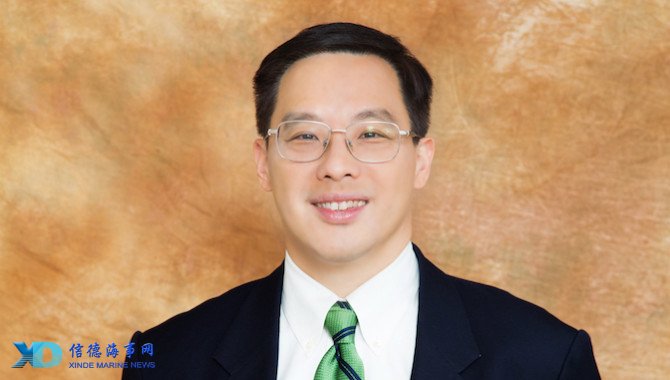
TCC Group chairman and chief executive Kenneth Koo owes much to the inspiration offered him by previous generations of his family. The next generation will thank him for his extraordinary contribution
For those unfamiliar with the name of Kenneth Koo (there can only be a few in the maritime world) it may take a while to gain a handle on the man. The chairman and chief executive of the dynastic Hong Kong shipping company, TCC Group has a disarmingly youthful look about him that belies more than 30 years in the business.
Met with a broad, welcoming smile that frequently breaks out into bouts of laughter, one may erringly think he lacks gravity. Rarely seen on a public stage, who would know that he has contributed more to the growing voice of Asian shipping than a dozen more publicly vocal members of his peer group? But although he wears his learning lightly it’s quickly apparent that he has one of the sharpest minds, and an encyclopaedic knowledge of the business, as well as an unmatched passion for its betterment.
The early days
Kenneth was born in 1960 to an extended family with deep maritime connections stretching back to Shanghai in 1917. It was there that his grandfather, C S Koo founded Tai Chong Cheang Customs Brokers Company. When a close friend of Kenneth’s grandfather passed away with the wish that he take over his friend’s ship, TCC appeared in its first manifestation as a shipping company. By 1939, the fleet had grown to 10 vessels. In 1949, in common with other members of Hong Kong’s now historic shipping community, Mr Koo relocated the renamed Tai Chong Cheang Steamship Company to Hong Kong.
From those early beginnings Mr Koo continued to grow the company until by the 1960s to early 1970s it owned a fleet of 12 new ships.
Kenneth was first exposed to the family business at around the age of five but the deepest impressions on his character were being made in the classroom.
“I have not been baptised but I went to religious schools throughout my childhood and adolescence, beginning with a Roman Catholic kindergarten, a Jesuit school in Japan at the age of seven, back to the Lutheran Hong Kong International and on to a Roman Catholic University in the US. The lessons I learned touched me deeply. Compassion was a lesson learned early. During my teenage years I was involved in a lot of outreach work and remember well the years when I helped out at an orphanage.”
Choices
Kenneth’s years in adult education were to lead to a turning point in his life because the freedom he felt at that time was ultimately an illusion. Unlike other traditional Chinese parents with a business to run his father K H Koo did not seem inclined to clip his son’s wings as Kenneth aspired first to be a sports writer. So far did he follow this ambition that he was offered a post at the LA Times. The law was also an attraction and he was offered a place as a paralegal with the New York legal firm Hill Betts & Nash. But eventually the call did come. Kenneth’s father was ageing. It was time to come back. Time to return to the family, the business and a new venture.
Kenneth returned to the embrace of his family just as his father and uncle, K W Koo set up Tai Chong Cheang Steamship Co (HK) Ltd.
In at the deep end
“In 1983 I literally knew nothing about shipping. But because I had undertaken an internship at a local legal firm it was assumed that I was the legal expert. So my father decided I should take care of the corporate side. But my uncle K W remonstrated with him and insisted that as I would one day own all of the assets I needed to know all about them immediately,” says Kenneth
“By the middle of 1984 I had begun my shipping career on the technical management side. But when my uncle passed so suddenly in 1991, I was really thrown in at the deep end and suddenly became responsible for technical fleet management.”
When Kenneth speaks of his uncle K W Koo it is with a deep affection for a man who was above all others his mentor and friend. He was also instrumental in bringing about a Damascene conversion in Kenneth’s attitude to the shipping business.
In 1985 Kenneth joined his uncle on a trip to Shanghai where the company was to sign a contract for a panamax bulk carrier at Jiangnan Shipyard. At the time it was to be the largest bulk carrier ever built in China. When the uncle and his nephew arrived at the yard celebrations were underway for the yard’s 120th anniversary. Kenneth takes up the story.
“I remember a great deal of jubilation at the yard on such a special day. But what really sticks in my mind is the launching of a handysize carrier, the MV Moxingling, ordered by Guangzhou Transport Brueau. When I saw the ship going down the slipway there were tears in my eyes. From that moment on I was hooked.”
From that day on Kenneth vowed to continue the TCC tradition of building on the spirit of family with a unique business philosophy and management platform that rest upon a foundation of institutionalization, professionalism and transparency. The result is a shipping company with 16 vessels with one of the highest reputations in the business.
The call
Kenneth says: “I would say that shipping for me now is a genuine calling. It may be that my religious background has rubbed off on me. But I really do feel there is a calling for me in terms of contributing in as many ways possible to the shipping industry.
“I am continuing my fathers’ work in as much as I see it as a duty to create a stronger Asian voice that should more accurately reflect the size of our presence,” he adds.
An Asian voice
Like his father, Kenneth has spearheaded a number of initiatives to improve many aspects of shipping through his current vice chairmanship of the Council of INTERTANKO, chairmanship of the Hong Kong Shipowners Association (2009-11), a seat on the Council of the International Shipping Federation, and the chair on the HKSOA’s Manning Sub- Committee and China Sub-Committee, to name just a few of the close to 25 senior industry posts he has worked on.
Among his achievements, earning him the reputation of an industry leader, Kenneth led a working group in the HKSOA developing the first ever set of guidelines for the selection and application of ballast water tank coatings in 1994. Formed a working group for of 12 Mainland China maritime education and training institutes to develop unified minimum standards of training in 1999.
Kenneth developed a proto-type Yangtzemax capesize bulk carrier with Shanghai Waigaoqiao Shipyard in 2000, and in 2010, he established a research and development programme with the University of South California’s Viterbi School of Engineering to develop the application of transient plasma injection technology to achieve total combustion efficiency in marine diesel engines. It is this last project that occupies his mind today.
“We actually have a partnership with Hyundai Heavy. And we are testing the application of this technology on the emissions remediation front with increasing higher output marine diesel engines culminating in a test on a 1MW engine next spring. Then we will scale up the engine size all the way up to 33MW, which is suitable for a VLCC.
“This technology means that you can continue to burn 3.5% sulphur without the need for scrubbers. There is no problem with NOx or SOx. We have also been surprised by a reduction in PMT 2.5 to well below the industry prescribed limits.
“Emissions remediation is just part of a larger effort which increases combustion efficiency. Diesel engines today can burn only 50% of the fuel oil with the other 50% emitted as unburned hydrocarbons. This project eliminates that waste. It has been 10 years in the making but we are hopeful it will go to market soon,” he adds.
In fact a tentative date of 2020 has been mooted, offering the real possibility that there will be a further option to tackle the IMO-imposed 0.5% sulphur cap on marine emissions from January 2020.
Reflections
Looking back over his career, Kenneth cites his personal highlights. “In 1992 we bought a 10-year old capesize shortly after my uncle passed away. The CSK Brilliance was my baby,” he exclaims. We ran her from 1992 to 2001 with not a single day off hire. I was so proud!”
The creation of the Maritime Educational Training Schools, which came up with minimum training standards for Chinese cadets was another proud moment. Delivering the world’s first “Green Cape” bulk carrier in 2003 also gets a special mention.
Kenneth would not allow anyone to think that he has achieved so much on his own. For more than 100 years TCC Group in whatever form has always been a family affair. And that won’t change anytime soon. Kenneth may not have achieved his youthful ambition as a sports writer but to take a sporting analogy he has been a relay runner since he took the baton from his father in 2005, and eventually he will pass it to his daughter Emily (30) and his son Edward (28). Unlike Kenneth both his children took to the business from the start with Emily doing a stint at Noble Chartering before joining the company, and Edward working for a spell at Chevron and a summer with DNV GL before joining the family concern.
Ever the eternal optimist, which might explain the always-on smile, Kenneth has a theory that with care most of us can now expect to live 90 years.
“During the first 30 years you make your entry into the working world. In the second 30 years you are making a foothold and becoming established in your field of endeavour. The last 30 years are strictly for you.
“I now spend most of my time as mentor, educator and guide to my children. I’m happy to sit back and keep an eye on them and only intervene when they ask for help. I am enjoying it immensely.”
Of course this is not entirely true. On an average day He will find time for his work with the HKSOA, INTERTANKO and even the Hong Kong Maritime Museum and the Sailors Home and Missions to Seamen. Looking 20 years younger than he actually is, it’s a good bet that the industry won’t accept his withdrawal for at least another 20 years.

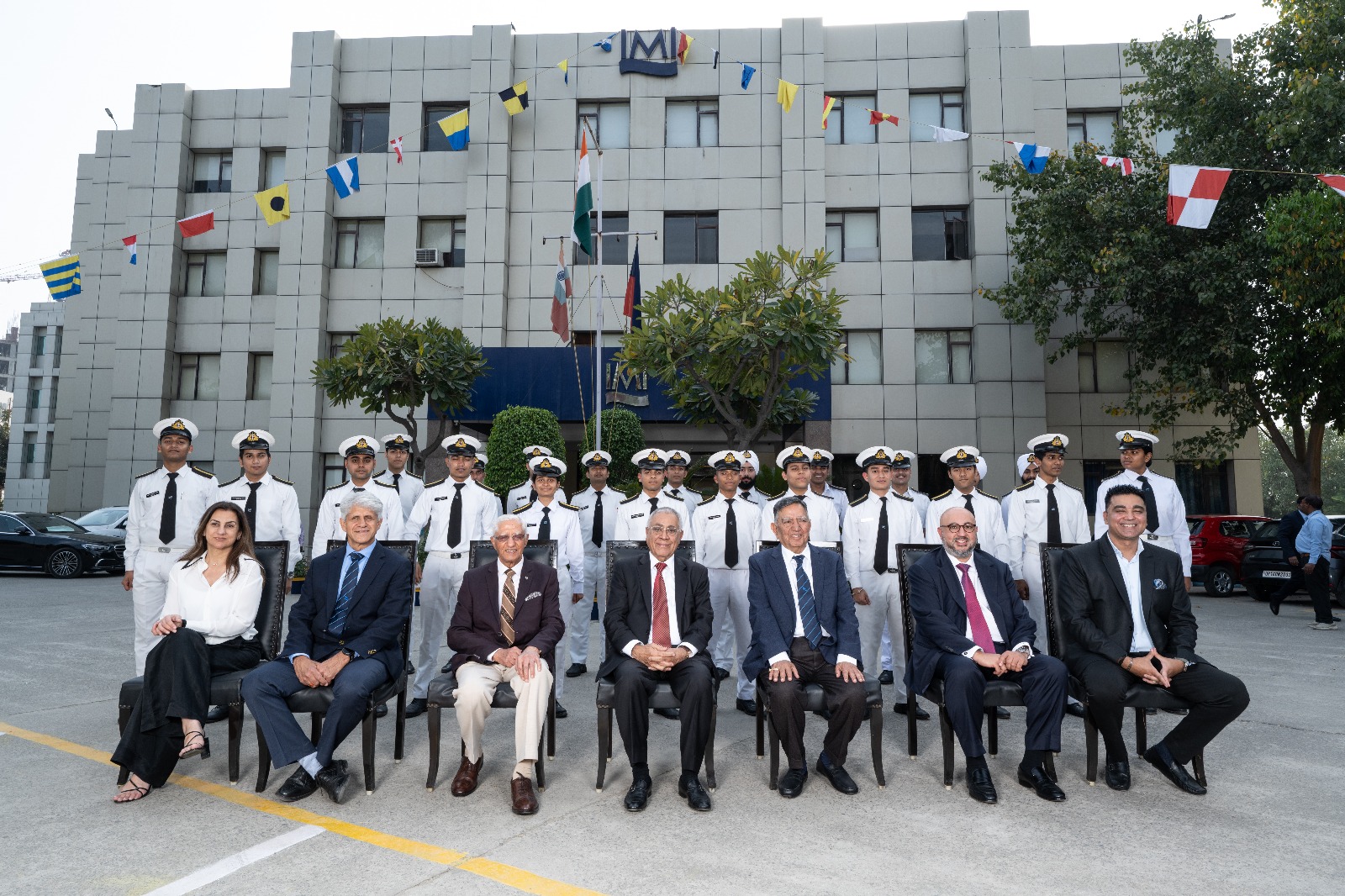 Dr. Harry S. Banga and Mr. Angad Banga of The Carav
Dr. Harry S. Banga and Mr. Angad Banga of The Carav 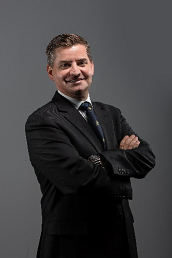 Liberian Registry Welcomes Kyle Hurst as Senior Vic
Liberian Registry Welcomes Kyle Hurst as Senior Vic  KATALIST: Accelerating Green Shipping through Innov
KATALIST: Accelerating Green Shipping through Innov  Revealing the risks: digital solutions for complian
Revealing the risks: digital solutions for complian 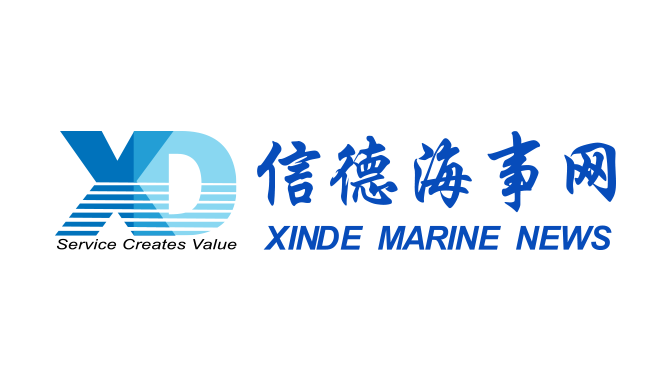 Beibu Gulf Port Chairman Zhou Shaobo Passes Away at
Beibu Gulf Port Chairman Zhou Shaobo Passes Away at 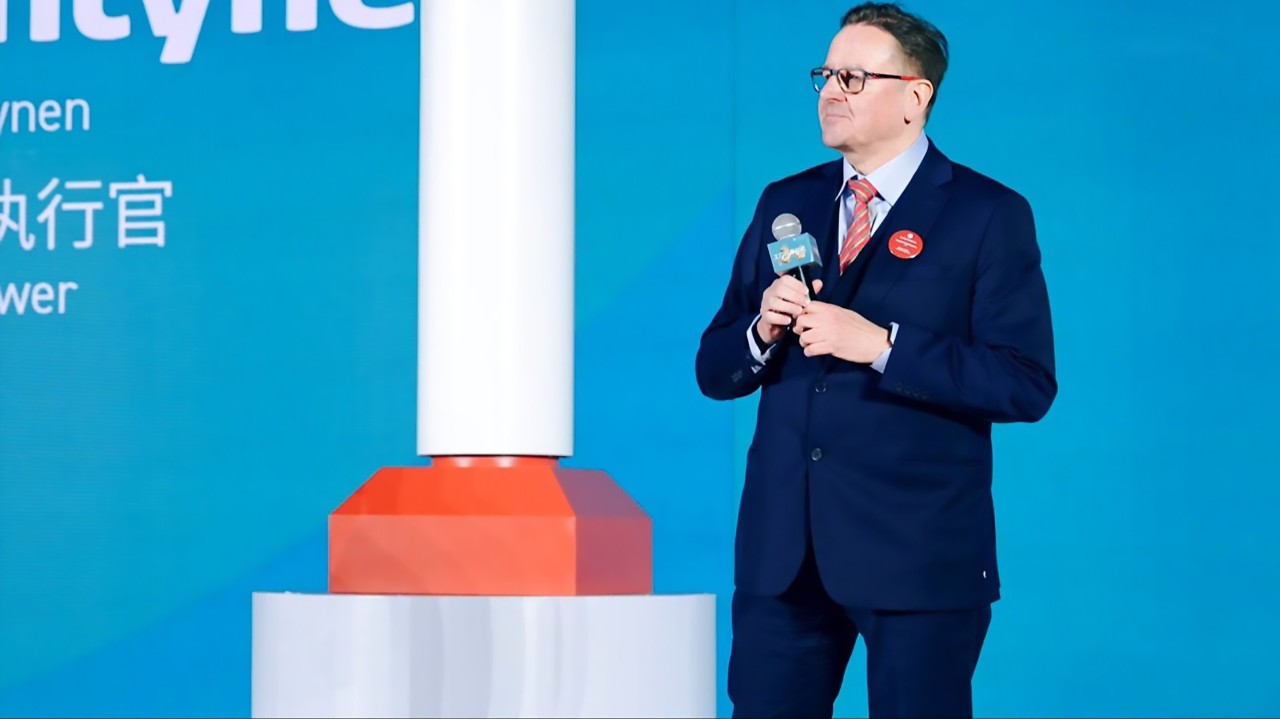 Exclusive Interview with Norsepower CEO: Bringing S
Exclusive Interview with Norsepower CEO: Bringing S